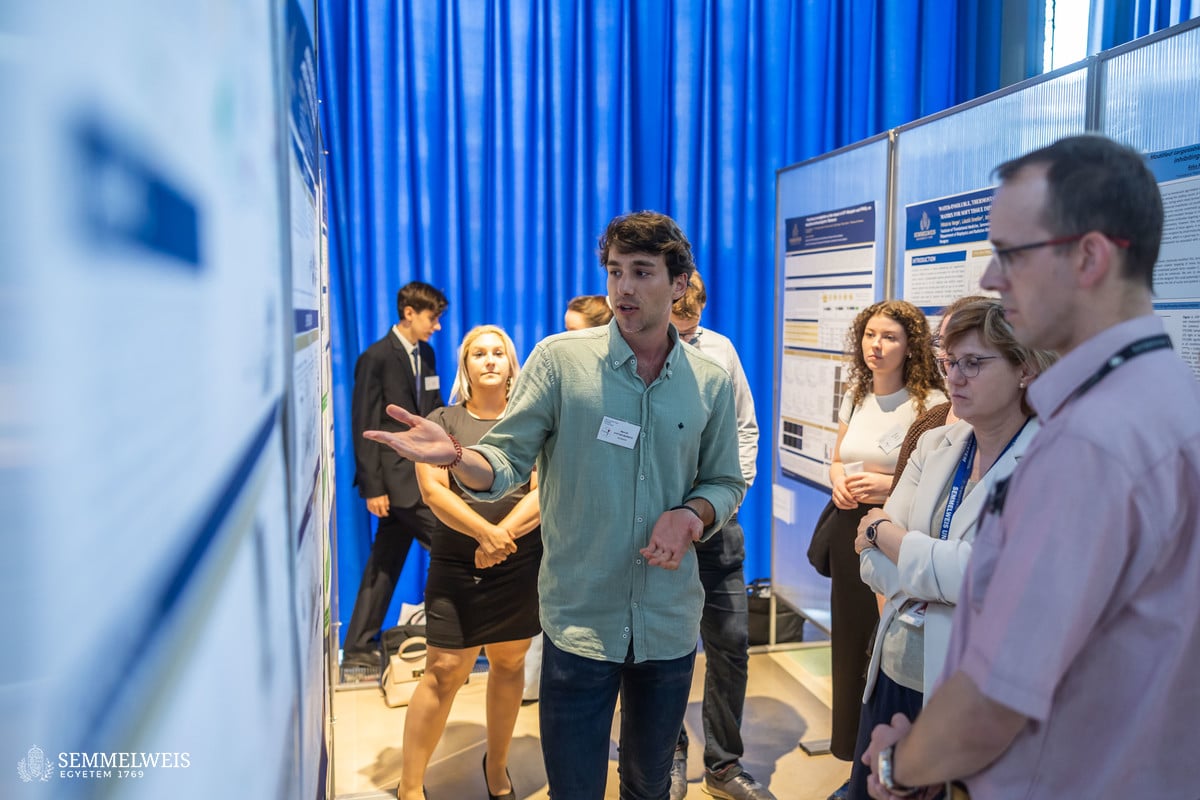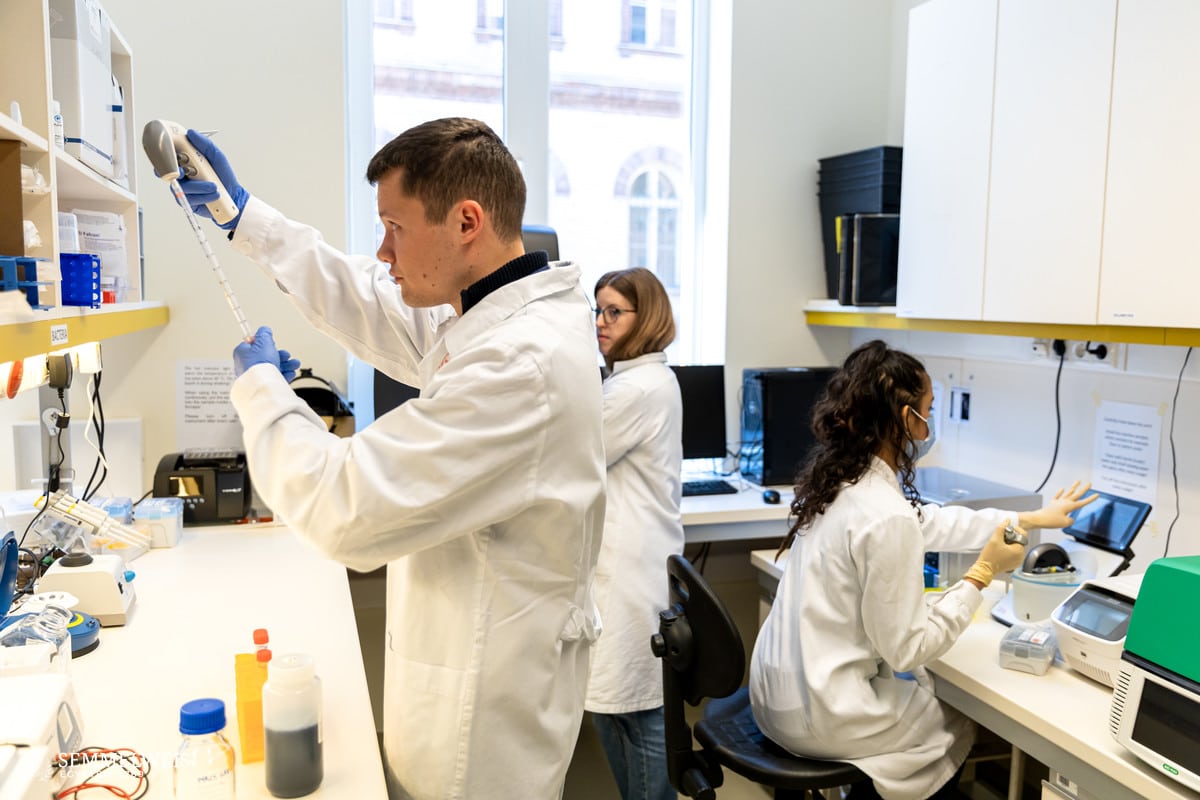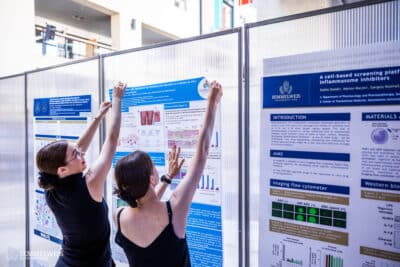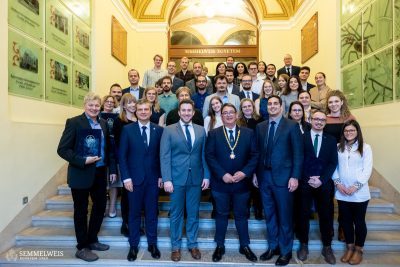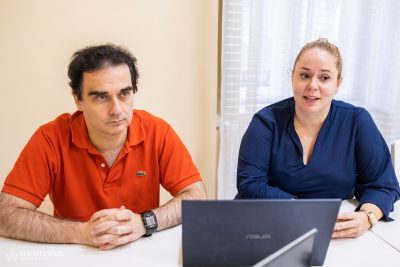The new scheme will continue to offer the conventional form of training with a monthly scholarship of HUF 140,000. Still, students will also be able to apply for cooperative and research excellence PhD programs. The cooperative doctoral training may be appealing to those considering a career in academia, and the university also counts on their future employment as faculty members and researchers. During their training period, they can work as part-time teaching assistants or research assistants for a corresponding salary, which is supplemented by a scholarship of HUF 250,000. Participants will sign a study contract with the university for the duration of the training period, the details of which are being finalized, noted Dr. Zoltán Benyó.
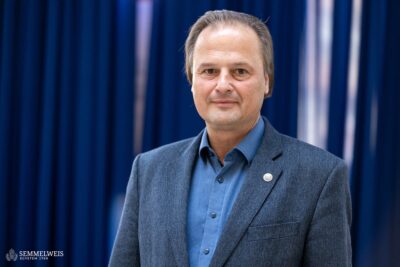 Provided that the research unit of a PhD student enrolled in a Conventional PhD Program can provide four hours of employment and an increased scholarship, the student can automatically be reclassified as a cooperative PhD program student. This is possible since the various training forms are interchangeable under certain conditions, emphasized the president of the Doctoral Council.
Provided that the research unit of a PhD student enrolled in a Conventional PhD Program can provide four hours of employment and an increased scholarship, the student can automatically be reclassified as a cooperative PhD program student. This is possible since the various training forms are interchangeable under certain conditions, emphasized the president of the Doctoral Council.
The cooperative PhD program is also available to residents. Although they were previously able to work four hours alongside their PhD studies, for administrative reasons, a part-time residency was regarded as a full-time position. However, as a result of the change, one residency position can now be filled by two part-time residents, thus overcoming the clinic’s conflict of interest. Part-time specialist candidates participating in a cooperative PhD program are also eligible for the increased scholarship of HUF 250,000.
The third option, the research excellence PhD program, also involves student status, but does not include a scholarship. Instead, a research grant funded by the National Research, Development and Innovation Office (NKFIH) covers the PhD student’s salary, which is double the minimum wage for graduates, i.e., HUF 640,000 before taxes. Although the student is self-financed, their tuition fees are paid by the research institute from grant funds. The 2025 calls for proposals already include the obligation to employ a PhD student, said Dr. Zoltán Benyó.
According to estimates by the president of the Doctoral Council, 10-20 percent of the 300 newly admitted PhD students will enroll in the cooperative PhD program.
Due to the interchangeability of the various schemes, we are offering this new opportunity to individuals currently undertaking doctoral studies and receiving a HUF 140,000 scholarship. The ratio of those opting for the new program is currently unpredictable, but it will increase once students can automatically transfer to cooperative status if their research institution or clinic’s budget can cover their part-time salary and increased scholarship. Further expansion of the number of students in cooperative training depends on state funding. – Dr. Zoltán Benyó
Regarding international students, Dr. Zoltán Benyó emphasized that only European Union citizens are eligible for Hungarian state scholarships.
Direct state funding is not required for the excellence PhD program, as the costs are covered by the grant, the president added.
As a new feature, the scholarship is awarded for the entire duration of the training, even if students obtain their PhD degree earlier. For example, those who complete their studies in two years will receive the remaining amount of the four-year scholarship in a lump sum. “However, we would like to make sure that this does not push students towards merely fulfilling the minimum requirements, as the university is interested in delivering significant scientific papers,” pointed out Dr. Zoltán Benyó.
According to the president of the Doctoral College, the new system’s greatest advantage is that it is much better suited to students’ diverse career aspirations.
The conventional PhD program is best suited for students who would like to pursue research after graduation but do not yet have any specific plans. The cooperative scheme is ideal for students who have been aiming for a university career from the outset. Physicians who aspire to clinical leadership roles while pursuing their scientific interests may enter the resident cooperative program. Those who envision their future in the field of industrial development or applied research and have already begun conducting research in a university setting during their studies may also be employed by an innovation-focused company and participate in doctoral training alongside their work.
The careers of participants in the excellence PhD program begin primarily in the HUN-REN research network, which is considered a good stepping stone to a research career after graduation, explained the head of the Doctoral College. If the research grant expires during the training period and the supervisor cannot continue funding the student’s salary, the cooperative program will still be available to the student under certain conditions. If not, the conventional or self-financed schemes will also remain options.
A broader range of training options, a more transparent, interchangeable system, and greater adaptability to individual career plans, along with higher allowances, may offer stronger incentives to complete doctoral training than before, said Dr. Zoltán Benyó. He added that the effects of the amendment would be felt this year but were expected to develop fully over time.
Anita Szepesi
Translation: Judit Szabados-Dőtsch
Photos by Bálint Barta, Attila Kovács – Semmelweis University
